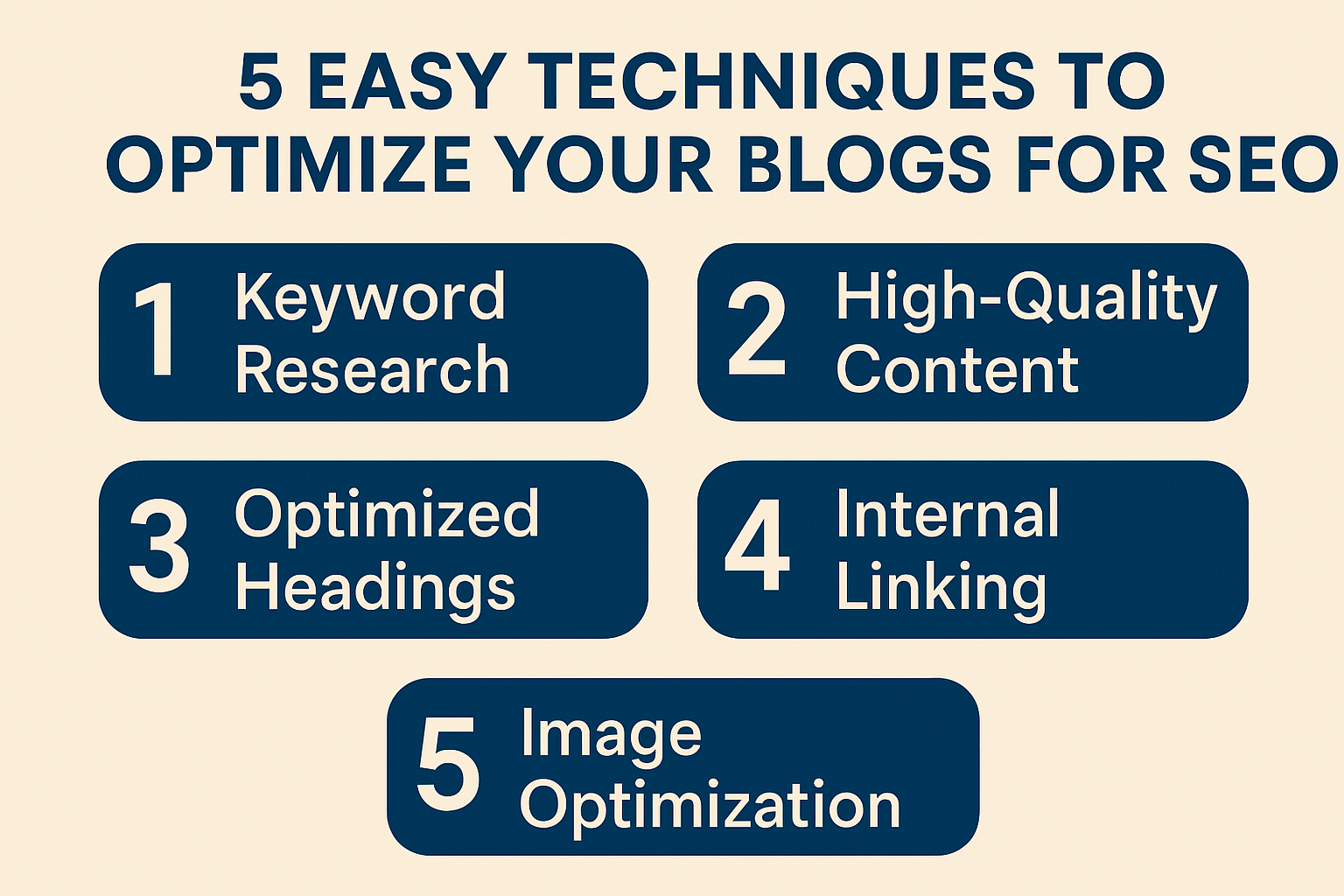How SEO Importance Transforms Your Online Presence
Unlocking Business Success: How SEO Importance Transforms Your Online Presence
In today’s fiercely competitive digital market, unlocking business success hinges significantly on understanding the profound importance of SEO. As a cornerstone of digital marketing, effective search engine optimization not only amplifies your website’s visibility but also drives a surge of organic traffic to your site. By strategically enhancing your online presence, you position your business for greater reach and engagement, making it more discoverable to potential customers. Whether you’re a business owner, digital marketer, or website developer, mastering SEO strategies is crucial for outshining competitors and achieving sustained growth. Join us as we delve into the transformative power of SEO and explore actionable insights that propel your business to new heights.
Understanding SEO Importance
In the digital age, understanding the importance of SEO is essential for any business seeking to succeed online. This section explores the fundamental role of SEO in digital marketing, its impact on website visibility, and how it drives organic traffic to your site.
SEO’s Role in Digital Marketing
Search Engine Optimization (SEO) is a cornerstone of effective digital marketing strategies. It acts as the bridge between your content and your target audience, ensuring that your message reaches the right people at the right time.
By aligning your website’s content with search engine algorithms, SEO enhances your online presence and drives targeted traffic to your site. This process involves a combination of technical optimization, content creation, and strategic planning.
SEO’s role extends beyond mere visibility; it’s about creating a seamless user experience that search engines recognize and reward. As search engines evolve, SEO remains a dynamic and essential component of any comprehensive digital marketing strategy.

Boosting Website Visibility
Enhancing your website’s visibility is a primary goal of SEO. In the vast sea of online content, standing out is crucial for attracting potential customers and growing your business.
SEO techniques help your website climb the search engine results pages (SERPs), increasing the likelihood of users finding and clicking on your links. This improved visibility translates to more eyes on your content, products, or services.
By optimizing various elements of your site, from meta descriptions to image alt text, you signal to search engines that your content is relevant and valuable. This, in turn, boosts your rankings and overall online presence.
Driving Organic Traffic
Organic traffic is the lifeblood of many successful websites, and SEO is the key to unlocking this valuable resource. Unlike paid advertising, organic traffic comes from users actively searching for content related to your offerings.
By targeting relevant keywords and creating high-quality content, SEO helps attract users who are already interested in what you have to offer. This targeted approach often yields higher engagement rates and enhanced conversion potential.
Moreover, organic traffic tends to be more sustainable in the long run. While paid campaigns stop generating traffic once you stop paying, the effects of good SEO can continue to drive traffic for months or even years after implementation.
Transforming Your Online Presence
A strong online presence is essential in today’s digital landscape. This section explores how SEO can enhance your brand recognition, foster customer trust, and promote user engagement, ultimately shaping your digital presence.
Enhancing Brand Recognition
SEO plays a crucial role in boosting brand recognition by increasing your visibility across search engines. When your website consistently appears in search results for relevant queries, it reinforces your brand in the minds of potential customers.
This increased exposure helps create familiarity with your brand, making users more likely to choose your products or services over those of your competitors. As users encounter your brand repeatedly in their searches, it builds a sense of authority and credibility.
Moreover, SEO helps you target specific demographics and regions, allowing you to tailor your brand message to the right audience. This targeted approach ensures that your brand resonates with those most likely to engage with your offerings.
Building Customer Trust
Trust is a cornerstone of successful online businesses, and SEO plays a significant role in establishing and maintaining this trust. When your website ranks high in search results, it signals to users that your content is valuable and trustworthy.
By providing relevant, high-quality content that addresses user queries, you position your brand as an authority in your field. This perceived expertise encourages users to trust your information and, by extension, your products or services.
Additionally, technical SEO aspects like site security and fast loading times contribute to a positive user experience, further enhancing trust. When users feel safe and enjoy interacting with your site, they’re more likely to become loyal customers.
Encouraging User Engagement
SEO isn’t just about attracting visitors; it’s about keeping them engaged once they arrive on your site. By optimizing your content and user experience, SEO encourages visitors to explore your site further and interact with your brand.
Techniques such as internal linking and optimized site structure make it easy for users to navigate your site and find the relevant information they need. This improved user experience leads to longer visit durations and lower bounce rates, both of which are positive signals to search engines.
Furthermore, SEO practices such as creating compelling meta descriptions and title tags can increase click-through rates from search results, attracting more engaged users to your site. The more users engage with your content, the more likely they are to convert into customers or brand advocates.

Crafting Effective SEO Strategies
Developing a robust SEO strategy is crucial for online success. This section explores key techniques in keyword research, on-page optimization, and technical SEO best practices to help you craft a practical SEO approach.
Keyword Research Techniques
Effective keyword research forms the foundation of any successful SEO strategy. It involves identifying the terms and phrases your target audience uses when searching for products, services, or information related to your business.
Start by brainstorming a list of topics relevant to your industry. Then, use keyword research tools to expand this list and gather data on search volume and competition. Look for a mix of high-volume keywords and long-tail phrases that are more specific but less competitive.
Consider user intent when selecting keywords. Are users looking for information, trying to make a purchase, or seeking a specific location? Aligning your content with user intent increases the likelihood of attracting qualified traffic to your site.
On-Page Optimization Tips
On-page optimization involves fine-tuning individual web pages to improve their ranking and attract more relevant traffic. This process includes optimizing both the content and HTML source code of a page.
-
Use your target keyword naturally in the page title, headers, and throughout the content.
-
Create unique, descriptive meta descriptions for each page.
-
Optimize images with relevant file names and alt text.
-
Ensure your content is high-quality, engaging, and provides value to the reader.
Remember, while it’s essential to optimize for search engines, your primary focus should always be on creating content that serves your audience’s needs and interests.
Technical SEO Best Practices
Technical SEO focuses on improving the technical aspects of a website to increase its visibility in search engines. These practices help search engines crawl and index your site more effectively.
Key technical SEO best practices include:
-
Ensuring your site is mobile-friendly
-
Improving page load speed
-
Implementing a secure HTTPS connection
-
Creating and submitting XML sitemaps
-
Using structured data markup
Regularly audit your site for technical issues and address them promptly. This proactive approach helps maintain and improve your search engine rankings over time.
Achieving Business Success with SEO
SEO is not just about improving rankings; it’s a powerful tool for driving business success. This section examines how SEO can enhance conversion rates, outlines methods for evaluating SEO success, and provides strategies for adapting to market fluctuations.
Increasing Conversion Rates
SEO doesn’t just drive traffic; when done right, it can significantly boost your conversion rates. By attracting highly targeted visitors who are actively searching for your products or services, SEO increases the likelihood of conversions.
Optimize your landing pages with clear calls-to-action (CTAs) and persuasive content that aligns with user intent. Ensure that your site’s navigation is intuitive, making it easy for visitors to find what they’re looking for and take desired actions.
A/B testing different elements of your pages can help you identify what resonates best with your audience, allowing you to refine your approach and improve conversion rates over time.
Measuring SEO Success
To truly leverage SEO for business success, it’s crucial to measure and analyze your efforts. Key performance indicators (KPIs) for SEO success include:
-
Organic traffic growth
-
Keyword rankings
-
Conversion rates
-
Bounce rate
-
Time on site
Utilize tools such as Google Analytics and Google Search Console to monitor these key metrics. Regular reporting and analysis help you understand what’s working and where there’s room for improvement in your SEO strategy.
Adapting to Market Changes
The digital landscape is constantly evolving, and successful businesses must adapt their search engine optimization (SEO) strategies accordingly. Stay informed about industry trends, algorithm updates, and changes in user behavior.
Regularly review and update your keyword strategy to ensure it aligns with current search trends and user intent. Be prepared to pivot your content strategy in response to market shifts or emerging opportunities.
Embrace new technologies and platforms as they arise, such as voice search optimization or AI-driven content creation, to stay ahead of the curve and maintain your competitive edge.
Future of Search Engine Optimization
As technology advances and user behaviors evolve, the future of SEO promises exciting changes and challenges. This section explores emerging trends, strategies for preparing for algorithm updates, and the importance of long-term SEO planning.
Emerging SEO Trends
The SEO landscape is constantly shifting, with new trends emerging that shape the way we approach search optimization. Some key trends to watch include:
-
Voice search optimization
-
AI and machine learning in search algorithms
-
Visual search capabilities
-
Mobile-first indexing
-
User experience as a ranking factor
Staying ahead of these trends can give your business a competitive advantage. Adapt your SEO strategies to incorporate emerging technologies and user preferences, ensuring your content remains discoverable and relevant.
Preparing for Algorithm Updates
Search engine algorithms are continuously evolving, with major updates potentially causing significant shifts in rankings. To prepare for these changes:
-
Stay informed about industry news and official announcements from search engines.
-
Diversify your traffic sources to reduce dependency on a single channel.
-
Focus on creating high-quality, valuable content that serves user needs.
-
Regularly audit your site for potential issues that could be affected by updates.
Remember, while specific tactics may change, the core principles of providing value to users and creating a positive experience will always be central to SEO success.
Long-term SEO Planning
Effective SEO is not a one-time effort but a long-term strategy that requires ongoing attention and adaptation. Develop a comprehensive SEO plan that aligns with your overall business goals and allows for flexibility as the digital landscape evolves.
Consider factors like:
-
Content creation and optimization schedules
-
Technical SEO maintenance and upgrades
-
Regular performance reviews and strategy adjustments
-
Integration with other marketing channels
By taking a long-term view of SEO, you can build a sustainable online presence that continues to drive business success well into the future.












